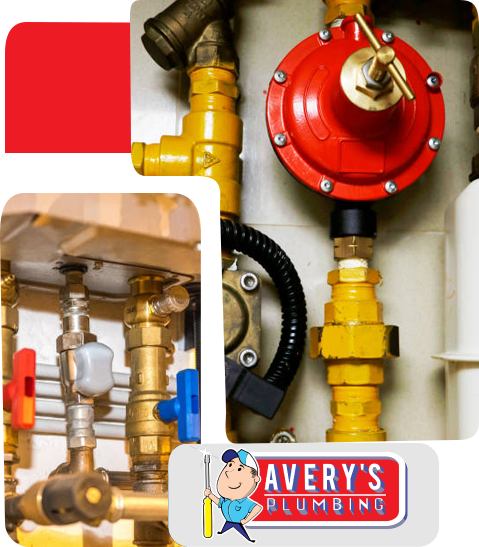
Prevention is the key to maintaining a well-functioning plumbing system. By implementing simple yet effective preventive measures, you can avoid costly repairs, inconvenience, and potential water damage. In this blog post, Avery’s Plumbing shares valuable tips to help you prevent common plumbing problems and keep your plumbing system in excellent condition. Follow these proactive steps to enjoy a worry-free plumbing experience.
-
Be Mindful of What Goes Down the Drains: Clogged drains are a common plumbing issue that can disrupt your daily routine. Avoid pouring grease, food scraps, coffee grounds, and other debris down the kitchen sink. Use drain strainers in the bathroom to catch hair and large particles. Additionally, avoid flushing non-flushable items down the toilet, such as wet wipes, feminine hygiene products, or paper towels. Being mindful of what goes down your drains can prevent clogs and ensure smooth water flow.
-
Regularly Inspect and Maintain Your Water Heater: Water heaters are essential for providing hot water throughout your home. Regular inspection and maintenance can extend the lifespan of your water heater and prevent unexpected breakdowns. Check for signs of corrosion, leaks, or unusual noises. Drain and flush your water heater at least once a year to remove sediment buildup. Consider scheduling professional maintenance to ensure optimal performance and efficiency.
-
Protect Exposed Pipes from Freezing: Freezing temperatures can cause pipes to burst, leading to significant water damage. Protect exposed pipes by insulating them with foam sleeves or wrapping them with heat tape. Disconnect garden hoses before winter and shut off outdoor water supply valves. If you’re leaving your home for an extended period during cold weather, consider draining your pipes or keeping the heat on at a low temperature to prevent freezing.
-
Monitor Water Pressure: Excessively high water pressure can strain your plumbing system, leading to leaks, burst pipes, and fixture damage. Use a pressure gauge to monitor your water pressure and ensure it falls within the recommended range (typically between 40-60 psi). If the pressure is too high, consider installing a pressure regulator to maintain safe levels. Monitoring water pressure can help prevent plumbing emergencies and prolong the lifespan of your system.
-
Schedule Routine Plumbing Inspections: Regular plumbing inspections by a professional plumber can catch potential issues before they escalate into major problems. A trained eye can identify hidden leaks, corroded pipes, or faulty fixtures that may be difficult to detect on your own. By scheduling routine inspections, you can address minor concerns early on, potentially saving you from expensive repairs and water damage.
Preventing plumbing problems is a proactive approach that saves you time, money, and headaches in the long run. By being mindful of what goes down your drains, regularly inspecting and maintaining your water heater, protecting pipes from freezing, monitoring water pressure, and scheduling routine plumbing inspections, you can significantly reduce the likelihood of plumbing issues. Remember, for professional guidance, plumbing maintenance, or any plumbing concerns, don’t hesitate to reach out to the experts at Avery’s Plumbing.
